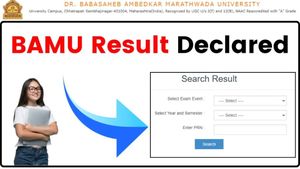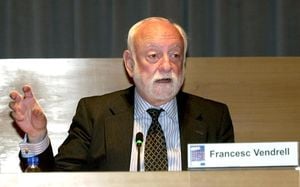Chico, California – An unprecedented crisis has gripped one of Australia’s largest plaintiff law firms, Slater and Gordon, due to the leak of sensitive information. An anonymous email, alleged to have been sent by the firm’s outgoing acting chief people officer, Mari Ruiz-Matthyssen, landed across the company’s inboxes, igniting severe internal controversies. This email, which reportedly included sensitive salary data for over 900 employees alongside scathing criticisms about the firm’s internal dysfunction, has sent shockwaves through staff and executive ranks alike.
The Australian Financial Review broke the story on February 21, providing insight on the explosive contents of the email. Initially appearing as a routine handover document, it soon became clear the email's inflammatory nature raised alarms about organizational stability and employee morale. Slater and Gordon, facing mounting distress among its workforce, quickly issued a statement denying Ruiz-Matthyssen’s involvement. A spokesperson emphasized, “The email contains numerous disparaging remarks about individuals and presents what appears to be internal information. Much of it is inaccurate and, in many ways, entirely fabricated.”
The firm has vowed to fully investigate the matter and report the situation to law enforcement, as employees grapple with the fallout of this breach of trust. Internal strife is not new for Slater and Gordon. Just months prior, employees overwhelmingly approved new benefits through negotiations with the Australian Services Union, indicating deep dissatisfaction before the email leak. Compounding the situation was the company’s self-reported payroll error amounting to $300,000, impacting around 100 employees, which raised concerns over its commitment to transparency.
Meanwhile, on the other side of the world, immigrant success stories like Sergio Garcia exemplify personal and professional perseverance, albeit within tumultuous political landscapes. Garcia, who made headlines as the first lawyer to obtain legal licensure without immigration status, stands as both symbol and advocate for changes to immigration law. Born in Michoacán, Mexico, and raised in Butte County, California, Garcia fought to becoming the first undocumented person to pass the California bar exam legally. He founded SCG Professional Law Corporation, insisting on serving his community, which he noted was lacking bilingual legal support.
Despite enduring backlash during his struggles, Garcia expressed deep commitment to his community, stating, “It’s really difficult to be 100% happy when you’re hearing stories about kids being afraid of having their parents deported.” The emotional toll of immigration policies weighs heavily on Garcia, who has spent years advocating for reforms, even proposing wealthier immigrants could pay for citizenship to support border improvement.
Legal professionals face various challenges, particularly as legal frameworks evolve and crises unravel. Defense Secretary Pete Hegseth’s recent dismissals of the top lawyers for the Army, Navy, and Air Force reveal the shifting dynamics within military legal oversight. This dramatic shake-up, seen as part of Hegseth’s vision to breed what he calls a “warrior ethos” among military members, raises questions about the legal liabilities of military operations.
Hegseth’s rationale is rooted in the belief the military has been impeded by excessive legal oversight, leading to decreased performance on battlefields. “Our troops will make mistakes, and when they do, they should get the overwhelming benefit of the doubt,” Hegseth asserted, presenting his approach as necessary rather than reckless.
Experts warn, though, this approach could jeopardize adherence to established laws of armed conflict and military justice. Rosa Brooks, noted legal scholar, articulated concerns about Hegseth's actions, saying, “It’s what you do when you’re planning to break the law: you get rid of any lawyers who might try to slow you down.” This disquieting sentiment encapsulates growing alarms within military and civilian legal communities over the potential erosion of ethical practices.
These narratives, from individual immigrant struggles to breaches of trust within well-established firms, exemplify the complex reality facing legal professionals today. Garcia embodies resilience amid persistent challenges, battling not only for his place within the legal profession but for the rights of those less fortunate. Meanwhile, the fallout from Slater and Gordon's email leak tests the bonds of trust within legal frameworks, underscoring the importance of integrity within law practices. Simultaneously, Hegseth's actions reflect the shifting philosophies challenging the balance between military efficacy and strict legal adherence. Legal professionals are at the crossroads of operational realities and ethical imperatives, faced with balancing individual ambitions and broader societal responsibilities.”



